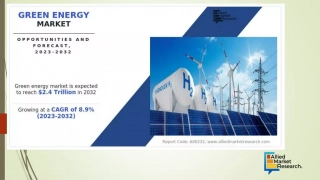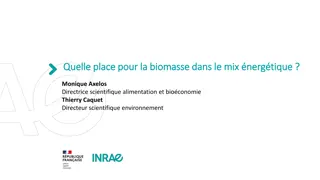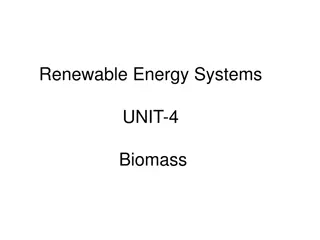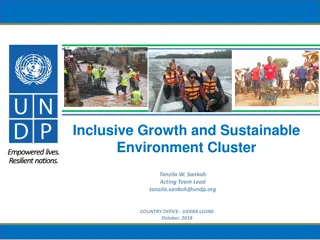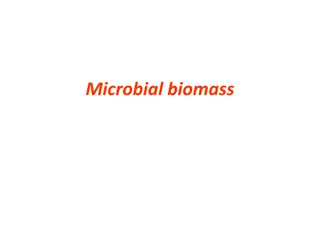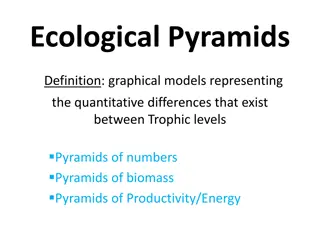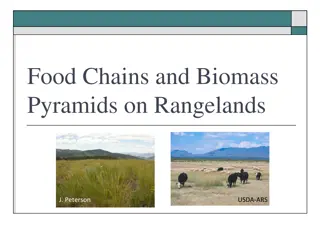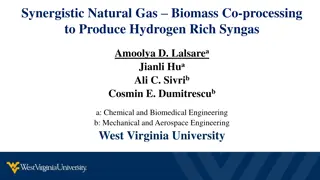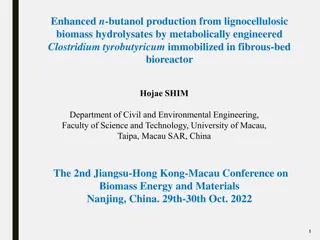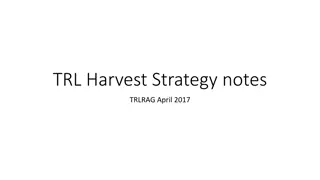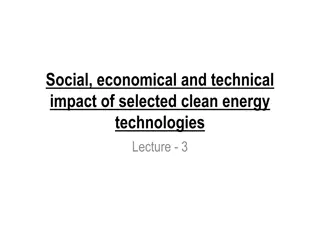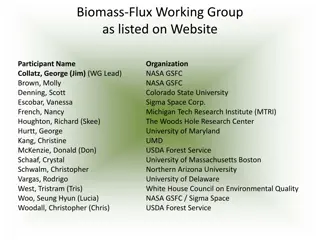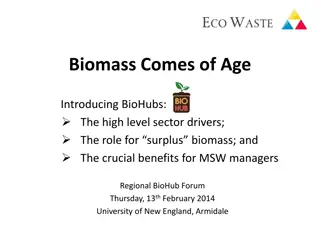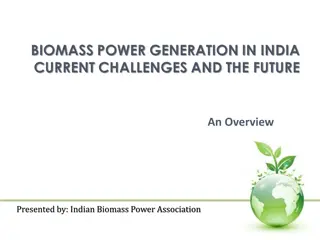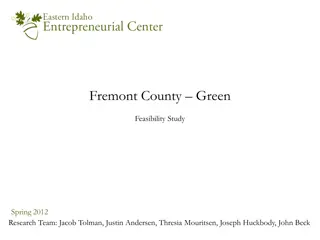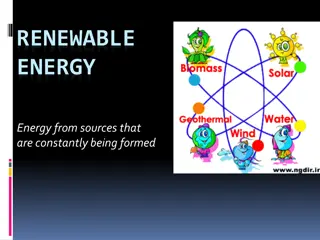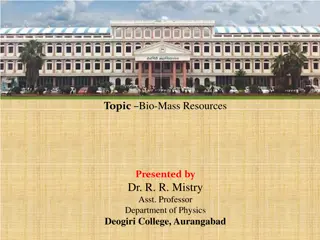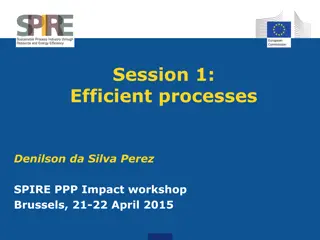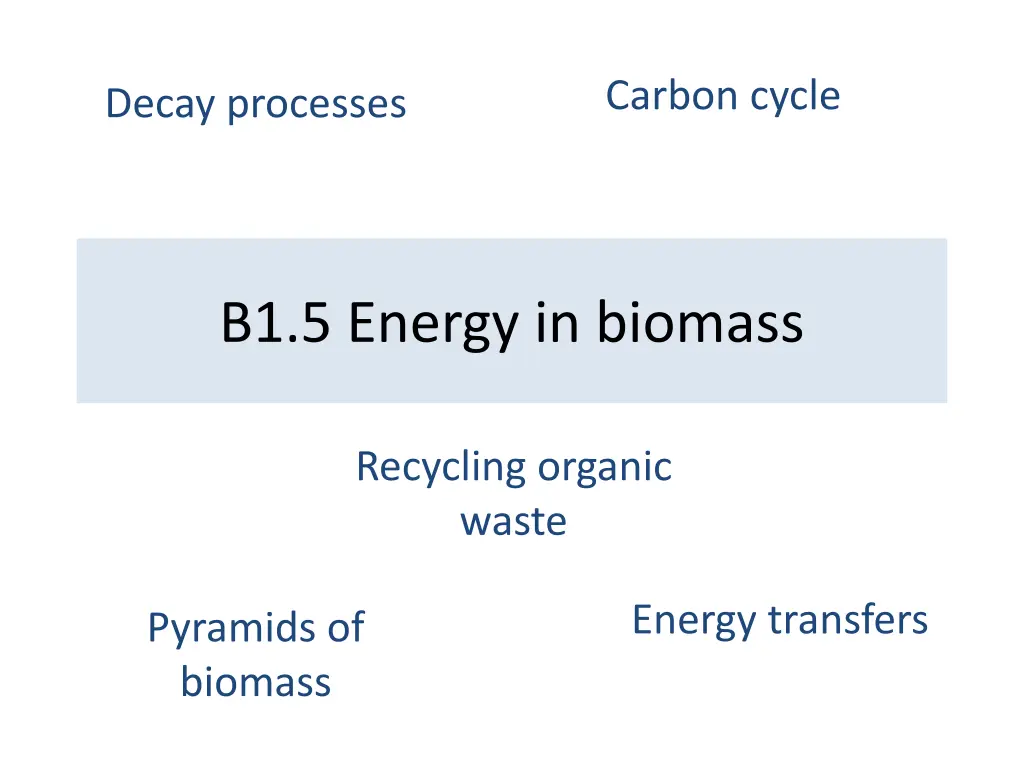
Understanding the Carbon Cycle, Energy Transfers, and Biomass Pyramids
Explore the intricate processes of the carbon cycle, energy transfers, decay mechanisms, recycling organic waste, and the concept of biomass pyramids. Learn about the importance of organic waste recycling, energy loss in various biological processes, and conditions for decay. Dive into the world of photosynthesis, respiration, combustion, and the vital role of decomposers in nutrient recycling. Discover how energy is transferred in ecosystems through pyramids of biomass, showcasing the availability of energy at different levels in a food chain.
Download Presentation

Please find below an Image/Link to download the presentation.
The content on the website is provided AS IS for your information and personal use only. It may not be sold, licensed, or shared on other websites without obtaining consent from the author. If you encounter any issues during the download, it is possible that the publisher has removed the file from their server.
You are allowed to download the files provided on this website for personal or commercial use, subject to the condition that they are used lawfully. All files are the property of their respective owners.
The content on the website is provided AS IS for your information and personal use only. It may not be sold, licensed, or shared on other websites without obtaining consent from the author.
E N D
Presentation Transcript
Carbon cycle Decay processes B1.5 Energy in biomass Recycling organic waste Energy transfers Pyramids of biomass
Pyramids of biomass http://tbn0.google.com/images?q=tbn:cAIVGxyKq-TRdM:http://www.bbc.co.uk/schools/gcsebitesize/science/images/bi01011.gif Biomass is the amount of living thing available to the next level in a food chain the mass of material in living organisms It is the total mass without the mass of water (dry mass in grams) Pyramids of biomass show how much energy is available at levels in a food chain
Energy transfers Much of the energy lost in: 1110 KJ in heat loss Movement (muscles contracting) Heat Keeping a constant body temperature (energy needed to keep warm or cool down) 3060 KJ in food 1797 KJ in urine and faeces Waste(herbivores can t digest all they eat, excess protein passed out as urea)
http://i.telegraph.co.uk/multimedia/archive/01369/maggots_1369579c.jpghttp://i.telegraph.co.uk/multimedia/archive/01369/maggots_1369579c.jpg Decay processes Conditions for decay: Warm Chemical reactions in microorganisms work faster when warm Reactions slow down and stop if too cold, enzymes denatured if too hot Moist Easier to dissolve food, prevents drying out Plenty of oxygen Decomposers respire, need oxygen to release energy Detritus feeders (e.g. Maggots, worms) start the process by eating dead animals and producing waste material Decomposers (microorganisms) digest everything, using some of the nutrients to grow and reproduce They produce waste products CO2, water and nutrients This recycling means the soil contains mineral ions plants need to grow and cleans up dead organisms Uses: sewage treatment works, compost
Carbon cycle http://www.farmingfutures.org.uk/sites/default/files/uploads/diagrams/carbon-cycle.gif The amount of carbon is fixed Photosynthesis: green plants and algae remove CO2 from the atmosphere passed on when plants are eaten Carbon dioxide + water glucose + oxygen Respiration: living organisms use oxygen to break down glucose CO2 is a waste product. Decomposers respire too Glucose + oxygen carbon dioxide + water Combustion: fossil fuels contain carbon , when we burn then CO2 is produced Fuel + oxygen carbon dioxide + water
Recycling organic waste Organic waste (e.g. Vegetable peelings) doesn t rot easily in landfill, it forms a liquid that can pollute waterways and methane gas which contributes to global warming http://t2.gstatic.com/images?q=tbn:ANd9GcS6wZrBgM56Wfevyac-x_tujLP4052djpShB3_YlWpMze9W0CAQ Making compost: To speed up the process: Mixing regularly helps oxygen get in Warmer conditions (up to about 70C) Moist conditions Methods: compost heap, black bag, compost bin, council composting

